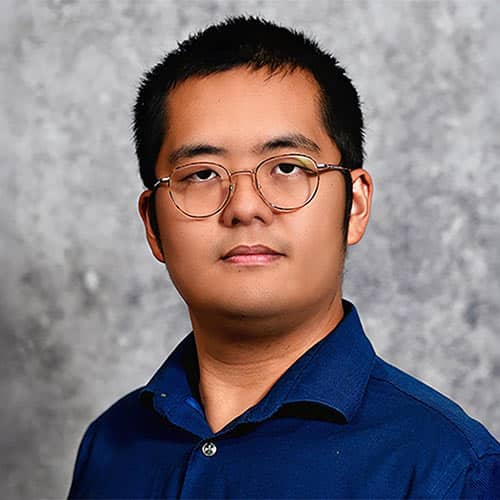Wentao Tang
Chemical and Biomolecular
- Phone: 919.515.2328
- Email: wtang23@ncsu.edu
- Office: 2001 Engineering Building I
- Website: https://tang.wordpress.ncsu.edu/
Wentao Tang was born in Hunan Province, P.R. China. He received his B.S. in chemical engineering and a secondary degree in mathematics and applied mathematics from Tsinghua University in 2015, and his Ph.D. in chemical engineering at University of Minnesota in 2020. He was a process control engineer at Shell Global Solutions (U.S.) Inc., where he undertook multiple research projects for the development of Shell’s advanced process control software, prior to joining NC State University.
Research Interests
Tang’s current research focuses on developing data-driven control algorithms that integrate nonlinear control theory with machine learning techniques, which avoid detailed dynamic modeling procedures and can be more flexible for systems with complex dynamics. He is also interested in derivative-free algorithms for optimization problems without explicit algebraic models, especially in how the solution of large-scale problems can benefit from the identification of underlying network topology, decomposition of networks into constituent subsystems and adoption of acceleration schemes.
Education
| Degree | Program | School | Year |
|---|---|---|---|
| Ph.D. | Chemical Engineering | Univeristy of Minnesota | 2020 |
| BS | Chemical Engineering | Tsinghua University | 2015 |
| BS | Mathematics | Tsinghua University | 2015 |
Publications
- Learning the Integral Quadratic Constraints on Plant-Model Mismatch
- Tang, W. (2025), ArXiv. https://doi.org/10.48550/arXiv.2502.00976
- Data-Driven Bifurcation Analysis via Learning of Homeomorphism
- Tang, W. (2024), Proceedings of Machine Learning Research, 242, 1149–1160. Retrieved from http://www.scopus.com/inward/record.url?eid=2-s2.0-85203701049&partnerID=MN8TOARS
- Data-Driven Nonlinear State Observation using Video Measurements
- Weeks, C., & Tang, W. (2024), IFAC PAPERSONLINE, Vol. 58, pp. 787–792. https://doi.org/10.1016/j.ifacol.2024.08.433
- Data-driven nonlinear state observation for controlled systems: A kernel method and its analysis
- Woelk, M., & Tang, W. (2024, July 8), CANADIAN JOURNAL OF CHEMICAL ENGINEERING, Vol. 7. https://doi.org/10.1002/cjce.25403
- High-throughput design of complex oxides as isothermal, redox-activated CO2 sorbents for green hydrogen generation
- Cai, R., Yang, K., Wang, X., Rukh, M., Bosari, A. S., Giavedoni, E., … Li, F. (2024), Energy & Environmental Science, 17(17), 6279–6290. https://doi.org/10.1039/d4ee02119c
- Koopman Operator in the Weighted Function Spaces and its Learning for the Estimation of Lyapunov and Zubov Functions
- Tang, W. (2024), ArXiv. https://doi.org/10.48550/arXiv.2410.00223
- Synthesis of Data-Driven Nonlinear State Observers using Lipschitz-Bounded Neural Networks
- Tang, W. (2024), Proceedings of the American Control Conference, 1713–1719. https://doi.org/10.23919/ACC60939.2024.10644627
- Systematic MPC tuning with direct response shaping: P arameterization and I nverse optimization-based T uning A pproach (PITA)
- Tang, W. (2024), CONTROL ENGINEERING PRACTICE, 153. https://doi.org/10.1016/j.conengprac.2024.106103
- Automatic decomposition of large-scale industrial processes for distributed MPC on the Shell-Yokogawa Platform for Advanced Control and Estimation (PACE)
- Tang, W., Carrette, P., Cai, Y., Williamson, J. M., & Daoutidis, P. (2023), COMPUTERS & CHEMICAL ENGINEERING, 178. https://doi.org/10.1016/j.compchemeng.2023.108382
- Data-Driven Bifurcation Analysis via Learning of Homeomorphism
- Tang, W. (2023), ArXiv. https://doi.org/10.48550/arXiv.2312.06634

